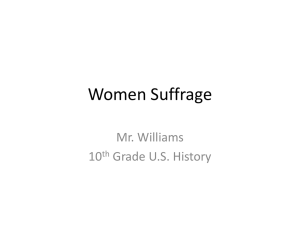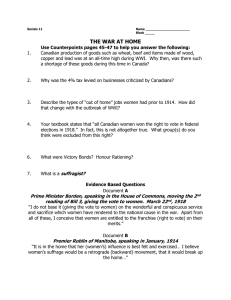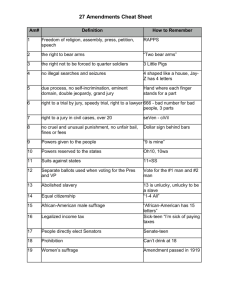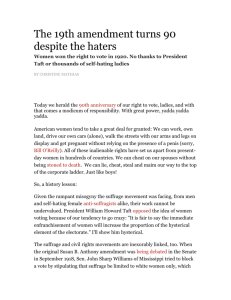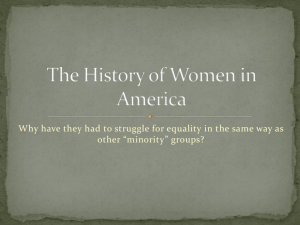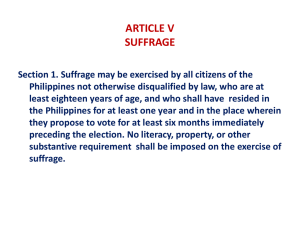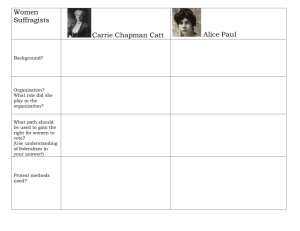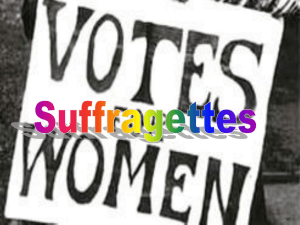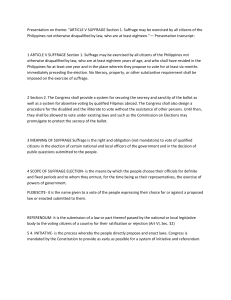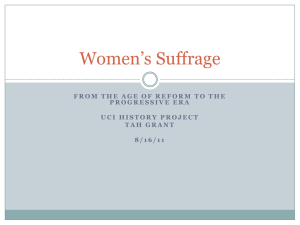The Movement for Women*s Rights
advertisement
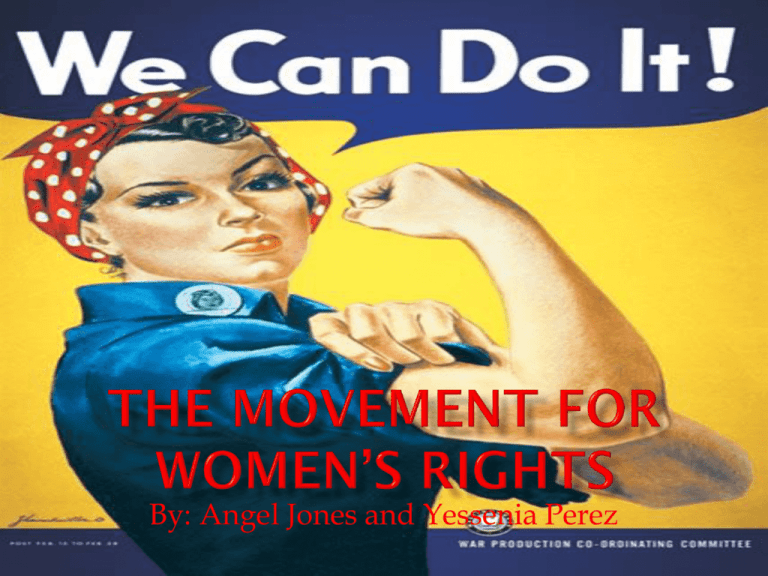
By: Angel Jones and Yessenia Perez Beginning in the 1830’s women became frustrated by the prejudices against women Family and marriage laws were the first to be focused on It was hard for women to secure divorces Husbands had control of their wives property because of property laws Women gained the right to their own property 1870 in Britain 1900 in Germany 1907 in France Britain legalized divorce in 1857. France only allowed a limited degree of divorce in 1844. Catholic countries (i.e. Spain and Italy) did not allow women to have any rights in divorcing their husbands. Middle and Upper class women were able to gain access to higher education and occupations that males worked in Women were becoming teachers and nurses One of the most well known nurse was Amalie Sieveking who founded the Female Association for the care and sick in Germany The women's suffrage movement was women campaigning for the right to vote Emmeline Pankhursdt and her daughters Christbel and Sylvia founded the Women’s social and political Union (WPSU) in 1903 pelted government officials with eggs, chained themselves to lampposts, smashed windows of department stores, burned railroad cars, and went on hunger strikes in jail. In 1918 the British government passed an act giving women the right to vote if the were over the age of 30 or rented or owned property for at least 5 Euro/year or if they were the wife of someone who did In 1928 a law passed allowing all women over 21 to vote. In most other European countries, women also were not permitted to vote until after WWI Beside suffrage women wanted peace Bertha von Suttner became the head of the Austrian Peace Society and would protest against the growing arms of race of the 1890s Lower class women also participated in the cause of peace http://www.tchevalier.com/fallingangels/bckgr nd/suffrage/ http://www.helsinki.fi/science/xantippa/wee/ weetext/wee214.html Spielvogel, Jackson J. “Western Civilization”. Wadsworth. 2010,2007. Print
